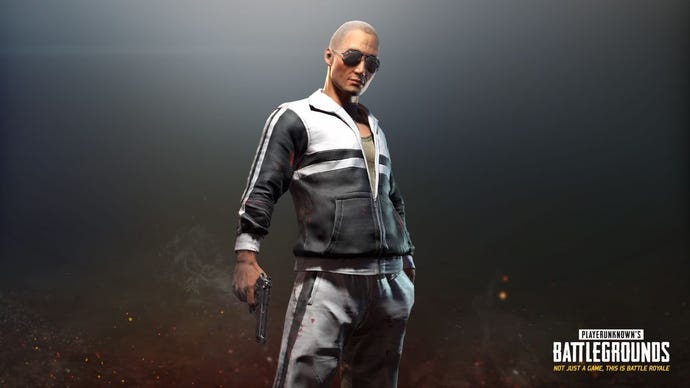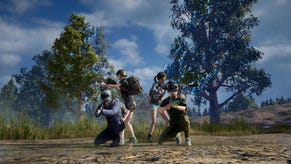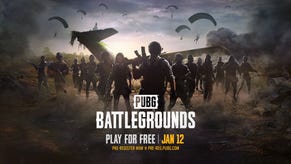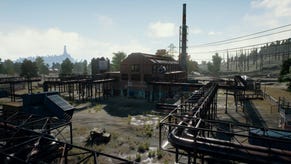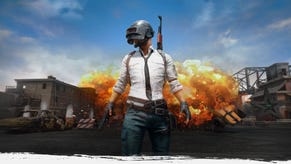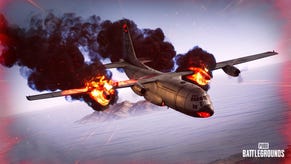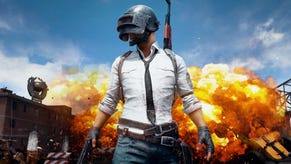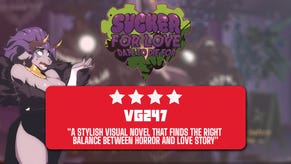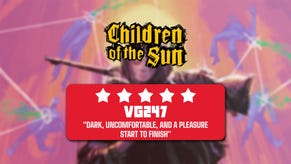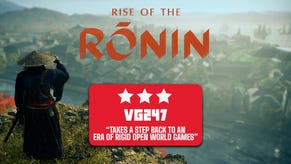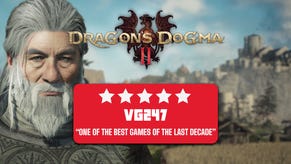PUBG PC review: the most interesting shooter in years upends what we expect from games
PlayerUnknown's Battlegrounds is a groundbreaking game not just because of its unique design, but also because of how it shakes up the standards we've been judging games by for years.
PUBG is a hard game to review. If you set aside its technical evolution from a scrappy, niche Early Access release to the much more polished (and popular) 1.0 launch, you’d still be left with a multiplayer-only game that is unpredictable by design. There are usually some parameters most games abide by, intentionally or not, that make judging them a relatively straightforward process.
The more I played of PUBG, the more I realised that this approach wasn’t going to work. What does 'gameplay feel' mean when you could play for hours without really being in firefights? How can you judge pacing when one round ends in five minutes and another takes 30? What defines the player experience when you know you have little control over a large part of it?
Then there’s the progression system, or lack thereof, and whether its absence hurts the experience. These are all questions I constantly asked myself as I wrote this review.
PUBG is a game of luck as much as it is of skill. Everyone starts off on an equal footing, but the game doesn't really start until you pick a landing spot. Some places on PUBG's two massive maps are more coveted than others, thanks to having higher probability of top-level loot. You could land in one of these places and risk dying in the first couple of minutes to the hordes of others trying to claim the same bounty. Or, you could pick somewhere quiet and take your chances with whatever loot you find. Both approaches are equally valid.
But this is only one part of the story. You may get to survive after looting one of the hottest places in the map, but someone could very easily ambush you and take it all. This can be more frustrating than dying early-game, because you feel an attachment to the stash you fought and killed to acquire. You get confident when you see the risk you took paying off, until it doesn’t.
On the other end of that is a player who knows they can't survive in the early-game slaughter that takes place at these hot spots, whom just as easily can play to their strengths and wait to pick off the survivors.
This constant duality doesn't just rule looting, it’s in every part of the game. The push and pull between action and inaction looms over every decision you make. It’s what makes PUBG what it is.
I put around 200 hours into PUBG across main and test servers, and I’ve played with all sorts of people. Some avoid danger, never engaging unless they absolutely have to. Others like to shut down anyone they perceive as a threat before it becomes one. I’ve won games where it was best to use the former strategy, and others using the latter.
A win is a win, just as it's okay to rage when you lose the game to someone you couldn't see. It's all part of the package, and PUBG isn't afraid to show this.
PUBG may not be a procedurally-generated Spelunky clone, but its multiplayer moments absolutely follow the same mantra. There’s potential for emergent gameplay in every round. The same unpredictability, randomness and uncertainty that loses you games, helps you win just as many.
PUBG cannot provide the consistent experience Siege, Counter-Strike or other tactical shooters do. Knowing the map and having good aim will help, but not nearly as well as they do in those games. It’s this simple fact that took me hours to come to peace with, and it's what ultimately will decide whether you continue playing.
This is by design, and it opens up avenues for people who typically avoid shooters to enjoy one without relying on hand-holding techniques or artificial progression systems. PUBG doesn’t have any of that. The adrenaline rush you feel when you realise you're one of five players left is the entire point. Being the only one left standing in a game that started with 100 players is the win, not the ‘winner winner chicken dinner’ screen.
That said, I had hoped some form of progression will be implemented at launch. A simple, level-based system with regular rewards, similar to Overwatch’s, can work well without having to gate any content. It ultimately doesn't really matter because PUBG still offers a very specific type of experience that not even similar games like Fortnite or H1Z1 - both of which have progression systems - could offer.
The Early Access journey has been exciting. Logging in every week to test out the new content and changes felt like unpacking a whole new game. No other game could generate so much anticipation for the ability to vault over obstacles. A feature so trivial, yet so crucial, had more hype than entire game launches.
Part of this is that players felt that their voices are being heard. Controversial additions were tweaked or removed, and it's this flexible development approach that so many other game-as-a-service developers fail to recognise. PUBG Corp never stopped working on the game since the Early Access release in March, and it kept the community informed at every step.
The game we have today is leaps better, both in terms of the amount of content and in the necessary changes and fixes that needed to be made. I used to think that all my issues with PUBG will magically disappear when version 1.0 rolls around, but that just isn’t practical. Though the team expanded, PUBG Corp is still a smaller, mostly inexperienced shooter developer. Expecting a polished game on the level of most Ubisoft or Activision titles is not fair.
I still want PUBG to get there, but PUBG Corp made the smart decision to focus on refining what’s unique about the game rather than create a Call of Duty-level smooth and accessible experience.
Characters still don’t look great, texture quality can be a hit or miss, and you’ll still find copy/paste buildings and models all over the game. There are still rough edges: vaulting requires a bit of finesse to do consistently, and a lot of the environments need to account for first-person gameplay better than they do now. These are all issues that still linger to this day, and though they’re far less annoying now, they’re still problems that affect all players.
PUBG is not what I’d call a perpetual Early Access game, the type of games that constantly change in Early Access with no end in sight. But I can’t help but feel that 1.0 here is an arbitrary distinction more than anything else. PUBG is the type of game that has and will continue to evolve over the next few years, so deciding what's worthy of being called 1.0 gets murky.
For all of its well-documented technical problems, rough edges, unintuitive controls, and bland looks, PUBG is decidedly more than the sum of its parts. And more than that, some of these blemishes are partially responsible for the game’s identity.
It’s akin to the S.T.A.L.K.E.R. series in a way. All ground-breaking games in their own right whose character is as equally defined by their technical shortcomings as it is by their singular atmosphere and mechanics.
There’s still room for a lean, polished Battle Royale game that borrows the same systems. Until then, PUBG’s innovations and triumphs are firmly its own, and I am just happy to have been along for the ride.
